Labor’s mining curse comes back to haunt Anthony Albanese
The government is now facing an existential threat in the state that gave it victory at the last election.
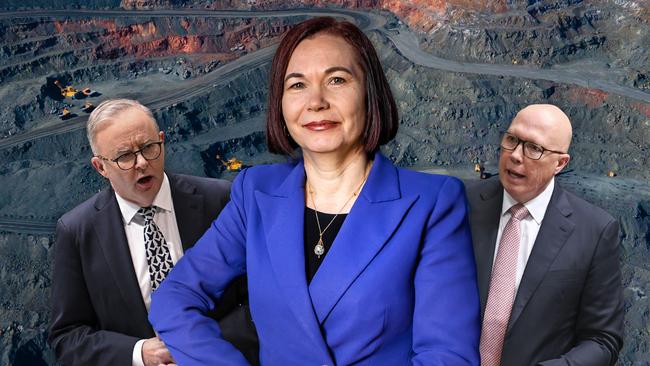
The battle with miners was fundamental in the destruction of Gough Whitlam and Kevin Rudd as Labor prime ministers – while the campaign over the carbon tax destroyed Julia Gillard as PM. Now Albanese is part hostage to the resources sector.
A paradox of the 2022 election is that mining-orientated Western Australia put Albanese into the Lodge when he won four seats in the West in a pandemic-induced debacle for the Morrison government. Since then, Albanese has made 23 visits to Western Australia, aware that two of the factors behind his success are gone – the departure of premier Mark McGowan and the passing of the anti-Morrison phenomenon, the upshot being the West next election will pass judgment on Albanese’s resources policy.
That policy is now under savage assault from the mining sector. The crucial question becomes: can Albanese navigate his way in the West between economic pragmatism and anti-mining political ideology? As Albanese works to keep his seats in WA, the left of politics – the unions, Greens, teals and the environmental lobby – escalate their campaign against the resources sector on a range of industrial, tax and environmental causes.
Polarisation around mining is deepening and the simmering tensions reached a danger zone this week. At the splendid annual dinner of the Minerals Council at Parliament House, with Albanese, Deputy Prime Minister Richard Marles and Treasurer Jim Chalmers in the audience, the industry chief executive officer, Tania Constable, attacked the policy framework of the government. It was an astonishing assault.
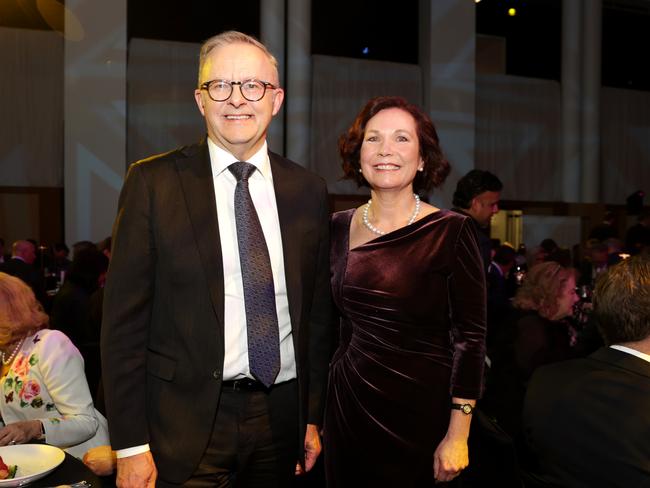
“You could forgive our industry for feeling like it is under siege or even punished for its success,” Constable said.
“Australian mining has faced a steady stream of restrictive policy interventions, from a series of reckless industrial relations changes, and royalty raids, complex regulatory changes and the looming threats of onerous and arbitrary environmental approvals.
“Prime Minister, the environmental approvals process must be sorted out.
“The cumulative effect is having a profound impact on the viability of projects, the risk appetite to unlock future projects, and the ability to attract investment.
“It is simplistic to suggest that mining can shoulder the burden of this new policy environment. Perhaps the more pertinent question is: can Australia afford the consequences if it can’t?
“Every Australian benefits when mining does well, from the funding for schools, hospitals and infrastructure. In the 2022-23 financial year, the industry contributed $74bn in company tax and royalties. This is more than any other industry and 40 per cent higher than the banks.
“Undermine it at your peril.
“We need the government to explain why it is so determined to tear up successful workplace arrangements and drag us back to the failed ways of the past. We don’t want conflict. But under these new workplace laws, conflict has been brought upon us. It is a deliberate design feature of these laws. Conflict is coming to every workplace, in every industry.
“And together we won’t shy away from calling this out. Any attack on the Pilbara is an attack on the entire mining sector. Just like an attack on Queensland coal revenues is an attack on the entire mining sector.”
In his defining speech to the council, Opposition Leader Peter Dutton sketched a political assault on Labor and the left of politics – as enemies of the nation’s resources development – saying the industry was under attack and global capital was looking to “safer markets than Australia”.
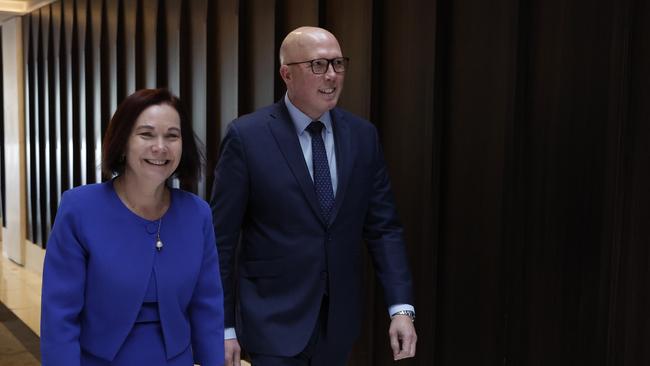
Dutton said: “No matter how many times the Prime Minister says he’s visited Western Australia, the fact is that his government is hostile to mining and to other critical primary industries.” Dutton said three forces drove this hostility – ALP rank and file activists, Labor’s fear of the Greens in inner city seats and Labor’s workplace agenda driven by the trade unions. The upshot was the nation’s natural strengths in iron ore, coal, gas and uranium were sidelined.
Dutton said a Coalition government would be the “best friend” of the mining and resources sector, a signal he will recruit the hostility towards the industry as an economic weapon against the combined forces of Labor, the Greens and the teals.
The Liberal leader made a series of pledges: a Coalition government would overturn Environment Minister Tanya Plibersek’s decision on the Regis goldmine; it will limit the ability of third parties to challenge decisions under the Environmental Protection and Biodiversity Conservation Act; it will defund the Environmental Defenders Office; it will wind back Labor’s industrial relations laws; it will “ramp up” domestic gas production; it will support lifting the ban on nuclear energy, mine more uranium and have Australia join the nuclear league of nations.
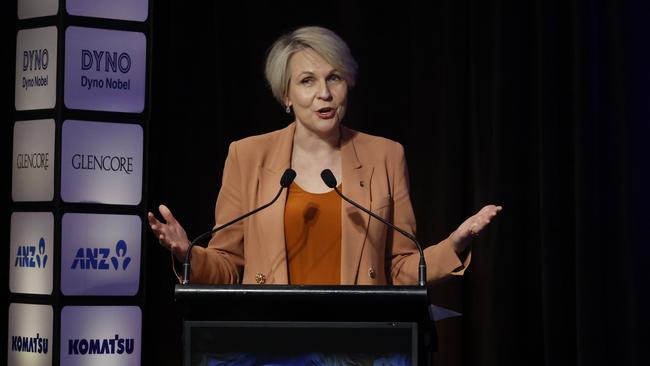
Amid a host of complaints at the Minerals Council convention, the industry has two overarching alarms – that Labor’s IR laws are now beginning to take effect and the permanent threat by the Greens to insist upon a “climate trigger” in our environmental laws, a mechanism that means any project generating a certain level of carbon emissions will require a specific environmental authorisation based on its climate change impact.
Albanese, obviously, is not for turning on the IR laws. The most recent flashpoint is the prospect that Labor’s new laws might open the way for the re-unionisation of the Pilbara with BHP spearheading the alarm. Resources Minister Madeleine King has attacked BHP, saying it “always railed against Labor policy” by complaining to the Murdoch press.
The Mining and Energy Union has identified a return to the Pilbara as an objective. The outcome remains to be seen. But the industry has lost any confidence in the Albanese government. Constable said earlier that BHP was being driven into negotiating on what promises to be the “first union collective agreement in the Pilbara in a decade”.
But Albanese has offered concessions on environmental law. A fortnight ago when in the West he floated major concessions in the legislation proposed by Plibersek, to establish an environmental protection agency with power to approve or veto projects.
Yet this week, in a tactical ploy, Plibersek left open the option of cutting a deal with the Greens on a climate trigger as a means of securing their support for her bill. This was widely seen as a negotiating lever to frighten the Liberals into coming on board and backing her legislation.
Dutton displays no interest in doing so. The Coalition’s environmental spokesman, Senator Jonno Duniam, told Inquirer: “Labor needs to figure out who it stands for. Is it the hundreds of thousands of workers in the resources sector, or is it the Greens voters in inner city Sydney and Melbourne?
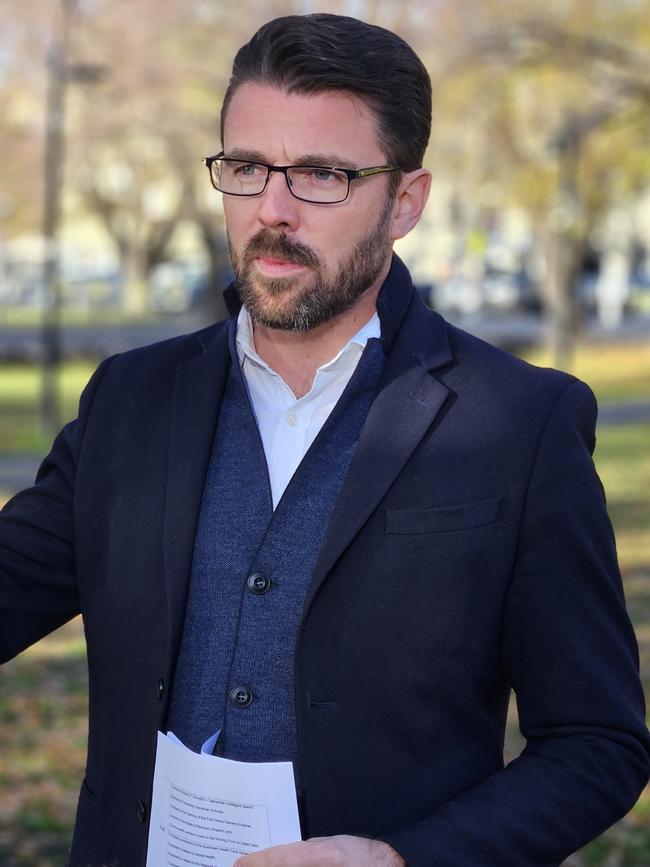
“As it stands, the Coalition has grave concerns about the environmental bill before the parliament, especially as Labor is trying to negotiate contemporaneously a climate trigger that would destroy jobs and economic activity.” The climate trigger is not in Plibersek’s current legislation. But the climate trigger is sanctified policy for the Greens. It is their article of faith. The price the Greens demand to support Labor’s environmental law is insertion of a climate trigger in the law.
Analysis done by the Institute of Public Affairs – based upon the 2022 climate trigger bill proposed by the Greens – calculates the cost to the Australian economy would be more than $227bn in lost investment in major resources projects. The state most damaged would be Western Australia, with a potential loss of $112bn of investment followed by Queensland with a loss of $67bn.
Labor’s WA Premier, Roger Cook, rejects any climate trigger being inserted in federal law. Plibersek makes clear she prefers to cut a deal with the Coalition, not the Greens, on her environmental law. But she said her aim was to see the environmental protection agency get established and, to this purpose, she was “in talks with the Greens political party, with the crossbench, with the Liberals, with the Nationals.”
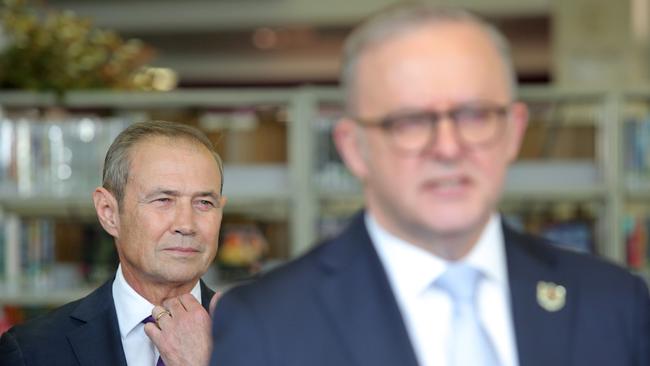
It is obvious Plibersek cannot cut any deal with the Greens on a climate trigger. Albanese and the cabinet would never allow it. It was unwise for Plibersek to put this option on the table. Its significance is that it gives Dutton the opening for a fierce scare campaign in the West in the election where the prospect of a minority Albanese government relying on the Greens will become a high-profile focus.
For Plibersek, negotiating with all parties makes sense, including testing the “red lines” of the Greens. Constable, who has long been in consultation with Plibersek, warned against “the imposition of a climate trigger on projects across all industries”. When the Business Council of Australia was notified last Wednesday about the possibility of Labor doing a deal with the Greens, it went into overdrive. The chief executive of the BCA, Bran Black, attacked any such move in an interview with this newspaper. Black told Inquirer: “We absolutely think this is the wrong move, for any deal to be done with the Greens that involved a climate trigger. It would be economically devastating and we would regard it as a breach of faith.”
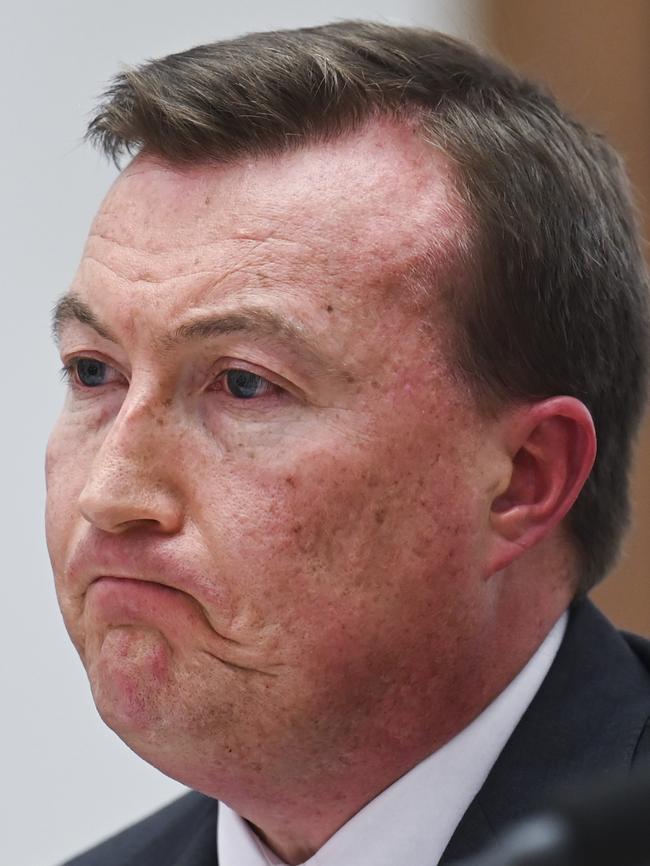
He warned that any changes to environmental laws “must be done in a bipartisan way, otherwise you are setting yourself up for years of legislative pain”. He also sounded the alarm that the climate trigger provisions would apply to renewable projects and ran the risk of eliminating projects that would contribute to the clean energy targets.
Fundamental to the opposition of the business lobbies is the argument that Australia has already established a network of instruments to reach net zero. Constable said: “The EPBC Act (Environment Protection and Biodiversity Conservation Act 1999) is not the appropriate tool for managing emissions. We already have the Safeguards Mechanism, the Renewable Energy Target, the National Greenhouse Gas and Energy Reporting Scheme and the recently passed mandatory climate reporting laws.”
Albanese is anxious to avoid any fight with the resources industry. That’s understandable. In the concessions he floated in Western Australia, he signalled a willingness to reduce the powers of the new environmental protection agency to a “compliance only” role and ensure the approval power over projects resided with the accountable minister, not the new body. This was Albanese pragmatism in action, trying to pacify the resource sector.
Constable hailed Albanese’s concession, called it “progress” and appealed to the Dutton-led Coalition to pass the law. Why? That’s easy – because it has no climate trigger, as opposed to leaving Plibersek’s environmental policy to be sorted in the next parliament where the pressure for a climate trigger will be far greater.
The ultimate fear of the resources sector and the business lobbies is that a minority Labor government after the 2025 election will be susceptible to the Greens’ demand for a climate trigger. While the Minerals Council wants the Coalition to come to the party now, the Coalition, so far, is far from convinced it should back Plibersek’s legislation.
Speaking at the Minerals Council dinner after the rhetorical assault from Constable, Albanese didn’t address her critique. He didn’t want a public dispute spectacle. It is an insight into how he functions as PM.
Can you imagine what Bob Hawke as PM would have done having to sit and listen to such a comprehensive assault on his policies?
Albanese talked about a partnership with the industry in the energy transition to net zero where the nation’s critical minerals will open the door to a “new era”. He also delivered a gentle admonition: we should not let “points of disagreement delay us” and “abandon co-operation for conflict”. It was an obvious reference to IR – the miners were unimpressed.
In her speech at Minerals Week, Resources Minister Maleleine King offered a rebuttal to Labor’s critics, saying: “No government in recent memory has put the resources industry at the centre of its policy-making in the way that the Albanese government has. I see it as a national mission to support this sector. The government put the critical minerals and rare earths industry at the heart of its policy-making through the Future Made in Australia plan.
“Under that plan, the government committed to a $17.6bn Critical Minerals Production Tax Incentive. As you know, this measure is being opposed by the Coalition. Shadow Treasurer Angus Taylor was out attacking the policy as ‘welfare for billionaires’ within just a few hours of the budget. It remains baffling to me why the Coalition would choose to dismiss industry-driven policy for the sake of getting up a soundbite about ‘welfare for billionaires’. This is no way to run a resources policy. Even from opposition.”
King said Australia was developing critical minerals strategies with a range of nations – the US, Britain, France, Germany, the Republic of Korea, Japan, India and the EU. She said the development of a new sector demanded government support – that’s what Labor was providing. Securing the support of long-term investors was essential. King said having a critical minerals industry was not a “nice to have” to augment iron core, coal and gold mining. It was a “strategic imperative”.
The aggressive stand taken by Dutton raises again the pivotal question for the Coalition: will it choose boldness in its election policies? This is a test for the ages on industrial relations. The Coalition has ducked genuine IR reform since the WorkChoices fiasco nearly 20 years ago. Is that legacy finally extinguished?
Asked about Constable’s attack on Labor’s IR laws, opposition workplace relations spokeswoman Michaelia Cash said: “The Coalition and the mining sector have repeatedly warned the Albanese government of the economic dangers posed by its reckless overhaul of industrial relations laws. The claims being made in the Pilbara are a union power grab and are not linked to productivity.”
Will the Coalition have the courage to bring down an IR policy that challenges Labor and matches the Coalition’s rhetoric? To this date, there is no settled Coalition IR policy. Obviously, it will need to wind back multi-employer bargaining in major high-wage industries with mining a standout example.
But Liberals with a long memory know what happens after that: a fierce Labor scare campaign about cutting worker rights and wages. The Coalition is skilled at attacking Labor’s weaknesses. But the real test comes only with its policy rollout.


The curse of the resources sector now looms over the Albanese government. It is an ingrained Labor weakness, decades long, with proven political consequences. Anthony Albanese wrestles with the conflict – the need to back the mining industry but pacify its fierce critics on the left of politics.